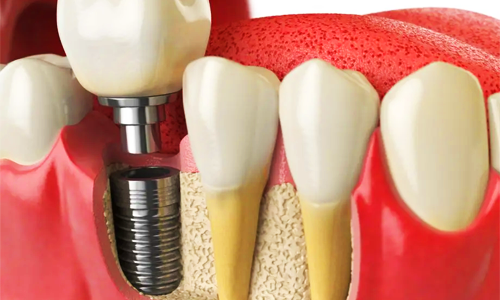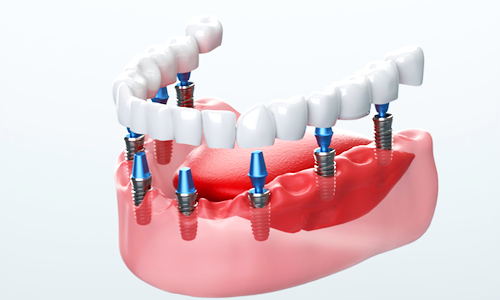What is Dental Implants?
Dental health plays a pivotal role in our overall well-being. Dental implants have emerged as a revolutionary
solution for individuals facing tooth loss due to various reasons. Understanding what dental implants entail,
their benefits, procedure, and other crucial aspects becomes essential for anyone considering this dental
treatment.
Introduction
Maintaining good oral health contributes significantly to our confidence and overall health. Dental implants
are one such solution that has transformed the landscape of restorative dentistry. Let's delve into the
intricate details of dental implants and their significance.
What Are Dental Implants?
Dental implants are artificial tooth roots made of titanium that serve as a sturdy foundation for
replacement teeth. These implants are surgically placed into the jawbone beneath the gums, allowing the
dentist to mount replacement teeth or bridges onto them. They offer a natural look and feel, effectively
restoring the functionality and aesthetics of the smile.
Types of Dental Implants
There are various types of dental implants available, including endosteal implants, subperiosteal implants,
and zygomatic implants, each designed to cater to different needs and conditions of patients.

Benefits of Dental Implants
The benefits of dental implants extend beyond mere aesthetics. They provide stability, comfort, improved speech,
and enhanced chewing functionality, resembling natural teeth. Moreover, they prevent bone loss and preserve
facial structure, fostering long-term oral health.
Dental Implant Procedure
The dental implant procedure involves several stages, including initial consultation, implant placement,
osseointegration, and placement of the artificial tooth. This process might span several months but results in
a strong, functional tooth replacement.
Candidates for Dental Implants
Ideal candidates for dental implants are individuals with good oral health and sufficient bone density in
the jaw to support the implant. A thorough assessment by a dentist determines the candidacy for this
procedure.
Dental Implant Aftercare
Proper care post-implantation is crucial for the success of dental implants. Maintaining oral hygiene,
regular dental check-ups, and avoiding harmful habits are vital to ensuring the longevity of implants.
Risks and Complications
While dental implants boast a high success rate, risks such as infection, nerve damage, or implant failure
exist. However, these complications are rare and can be minimized by following post-operative instructions.
Dental Implants vs. Other Solutions
Dental implants stand out among other tooth replacement options like bridges or dentures due to their
durability, natural appearance, and functionality.
Cost of Dental Implants
The cost of dental implants varies based on factors like the number of implants, the need for additional
procedures, and geographical location. Despite the initial investment, their long-term benefits often outweigh
the cost.
Success Rate and Longevity
Dental implants have a high success rate, with proper care and maintenance, lasting for decades or even a
lifetime, making them a worthwhile investment for many individuals.






